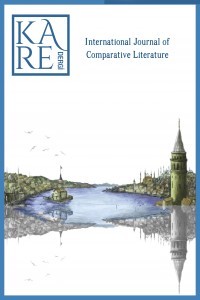EASTERN DESPOTISM IN LORD BYRON’S WORKS: CHILDE HAROLD’S PILGRIMAGE, THE BRIDE OF ABYDOS AND THE CORSAIR
EASTERN DESPOTISM IN LORD BYRON’S WORKS: CHILDE HAROLD’S PILGRIMAGE, THE BRIDE OF ABYDOS AND THE CORSAIR
Being one of the most prominent Romantic writers of his time, with his flamboyant life style and sensational personality, Lord Byron attracted his contemporaries and the society to a great extent. Having been an outcast by scandalous incidents, along with his personal quest for meaning in life, he set a long journey to the “exotic” East. He wrote many letters as well as journals to keep the track of his observations and experiences and also fictionalised what he saw to get the public attention. The East (Orient), occupied, altered and exploited in physical and theoretical terms, was the major concern of the Europe (West-Occident) at that time. Byron, the Romantic, employed and manipulated his encounters with the people of Eastern cultures and mentioned them in his works. He had liberal leanings and sympathized with the people, who sought refugee from strict governments and policies that put borders to their freedom. As East was mostly described to be governed by oppressive tyrants, Byron, taking this claim real, visited Ali Pasha of Tepelene and stressed his features as the epitome for the majority of Eastern governors. In his Childe Harold’s Pilgrimage, he mostly reflected his inspirations of the Albanian Ali Pasha and his palace. In The Bride of Abydos, a pasha and his domestic oppression against his household, was fictionalized. In The Corsair, another pasha and his wife were depicted. All three works accommodate a very authoritarian male, who controls the people around him, which, is the exact point where Byron makes his criticism about the Eastern way of living and this paper will try to examine how Byron employed the idea of despotism in his aforementioned works.
Keywords:
Byron, Orientalism, Eastern Despotism Romanticism,
- ISSN: 2536-4596
- Yayın Aralığı: Yılda 2 Sayı
- Başlangıç: 2016
- Yayıncı: Hasan BAKTIR
